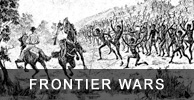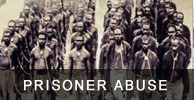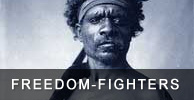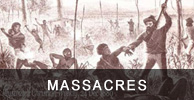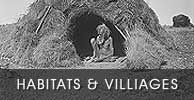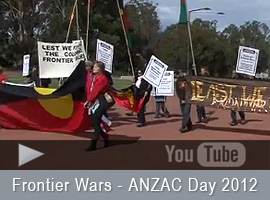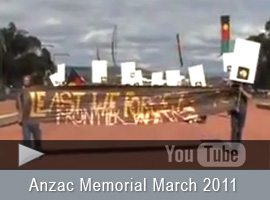ANZAC Day – for those who served in all wars, conflicts and peacekeeping operations

Aboriginal people who died in defence of their lands during the colonial invasion and the deaths suffered at the hands of people with genocidal intent are remembered by all Aboriginal people, particularly in areas where bodies have been left on open ground all those years ago and are now commemorated by sun-beached bones and unmarked graves, which represent the human toll by an inhumane society.
The unjustified criticisms by politicians and the Returned Services League (RSL) clearly shows the denial of Australian authorities of the reality of injustice perpetrated against Aboriginal people.
After all, the Returned Services League website acknowledges that:
We are gathering at the lower end of ANZAC Parade, Canberra (near East Block) at 10am to respectfully join in behind the 11am march on Anzac Day 25 April 2012. All supporters welcome.
In the wars that Anzac Day currently remembers, in excess of 7,000 Aboriginal people fought offshore alongside their non-indigenous comrades, but the relationship turned sour immediately upon their return to Australian shores. The souring of these peoples’ efforts is traced directly to the barbaric and inhumane racist laws that made Aboriginal people prisoners on their own land and wards of the state. This in turn denied any the sense of justice, when we listen to Aboriginal families describe the injustices perpetrated against their grandfathers and great grandfathers, who fought in the First and Second World Wars.
The types of memories that I have been hearing the last two weeks from Aboriginal people are epitomised in the story of an old Aboriginal man called Bill Cochran of Goodooga in northwest NSW, who went to the First World War with a work mate called Digger Scott. On their return Digger Scott was given a soldier settlement grant at Goodooga, while Digger Bill Cochran returned as a ward of the state to a tin hut with a dirt floor and no civil or citizen rights.
Then there is a Murruwarri man from Weilmoringle in northwest NSW, Harold West, who with his Euahlayi mate, George Leonard, fought in PNG with their white mates and when trying to cross the Owen Stanley Ranges. George Leonard was fatally wounded and the journalist travelling with this battalion recorded that Harold West, in his grief, returned to his Aboriginal custom and disappeared naked with a belt of hand grenades and a bayonet to go after those who killed his mate. Within a couple of nights the Japanese who were holding down the top of the Owen Stanley Ranges disappeared from sight after explosions were witnessed. When the non-Aboriginal troopers arrived at the top of the Owen Stanley Ranges they soon learned of the effects that one Aboriginal man can have when resorting to guerrilla tactics. Harold West man was recommended for a Victoria Cross for his efforts, but, no doubt because he was an Aboriginal and a ward of the State, these recommendations were rejected; the State’s racist laws would have prejudiced his consideration for a VC.
It is now time for the RSL and the government to review Aboriginal participation in the offshore wars in defence of their country and do as the USA has done for the African American airmen and justly compensate them after 70 years.
In conclusion, we are calling upon the RSL and the government to locate all the families of Aboriginal service men and women and put head stones on the grave sites of these brave people, just as they do with non-Aboriginal people.
We further call upon the state and federal governments to work with Aboriginal people to establish historical memorial sites, with the advice of Aboriginal people, to identify the massacre sites during the colonial invasion. We need these areas to be excised as places of remembrance and protected by law.
If Germany can deal with their horror history and establish memorial sites, so too can Australia. Australia has to deal with its true history, as it is only through this effort that this nation can begin to heal.

